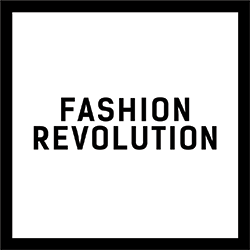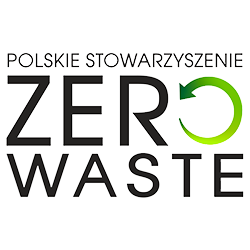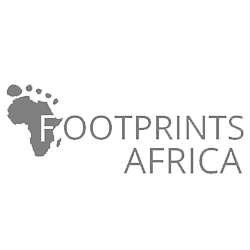Our Allies
The organizations below stand in solidarity with Kantamanto by supporting our call for Global Accountability.

Dounia Wone, Chief Sustainability & Inclusion Officer, Vestiaire Collective
“Fast fashion has no value, and even less in resale. We’ve taken this step because we don’t want to be complicit in this industry which has a tremendous environmental and social impact. The current system encourages overproduction and overconsumption of low quality items and generates huge amounts of fashion waste.”
Read More + Read Less -

Rebecca Burgess, Executive Director, Fibershed
“This call to strategically organize across political boundaries is the only way that extended producer responsibility will actually function as a tool to level the playing field between over consuming countries, and those taking the responsibility for managing post consumer overproduction streams, hence the only salient vision for overcoming the colonial model. The design frameworks and financial bottom lines expressed in this paper are what we need to enact together.”
Read More + Read Less -

Bobby Kolade, Founder, BUZIGAHILL
“We strongly advocate for the EPR program recommended in this paper as a means to respect and compensate for the decades of work Ugandans have put into processing waste from the global North. African importers, and businesses such as ours, do not have the liberty to choose. Until this changes there can be no ethical fashion system.”
Read More + Read Less -

Julia Faure, En Mode Climat
“As brands, it is our responsibility to assume the totality of the costs of the end of life of our clothes. Europe must go much further than the French EPR. The proposals of the OR Foundation go in this direction and we will support them.”
Read More + Read Less -

Nkwo Onwuka, Founder NKWO
“This campaign is so important because it is a collective call to action to save our continent from being assigned the role of dumping ground for the over-production and over-consumption of the Global North. If we can change this then it may very well be the catalyst we need to take Africa back, develop it for us and finally become truly independent”
Read More + Read Less -

Liv Simpliciano, Policy & Research Manager, Fashion Revolution
‘“Fashion Revolution stands in solidarity with The OR Foundation, Kantamanto Retailers and Tailors in demanding the European Union to stop writing waste colonialism into law. For too long, major fashion brands have gotten away with an incomprehensible churn of clothing which has led to immense social and environmental issues globally. Extended Producer Responsibility is a necessary mechanism in order to hold brands accountable for these impacts and foster a regenerative, justice-led transition to a circular economy.”’
Read More + Read Less -

Omoyemi Akerele, Founder and Executive Director, Style House Files | Lagos Fashion Week
“With the large quantities of secondhand imports into Africa, many manufacturers find it harder to produce locally thereby posing a great threat to the development of the textile and garment sectors. The constant burning and unending traffic congestion around Katangowa and Aswani markets in Lagos are only two of the difficulties experienced by residents of that community, further compounded by a myriad of other challenges such as the right to a clean living environment and socio economic welfare, makes this even more of a bitter pill to swallow considering the reality that it’s welcomed by low income workers and members of the gradually diminishing Nigerian middle class. With little to no traceability, how can we ensure the reliability of sustainability claims, in the areas of human rights, labour (including health and safety), the environment and anti-corruption.At Style House Files | Lagos Fashion Week, it was important to spotlight this juxtaposition as part of our campaign in 2018 but the time has come to take a more definitive stand to ensure there’s a permanent solution to eradicating or ameliorating this once and for all. We endorse the Stop Waste Colonialism petition by The Or Foundation because of the urgency required to alleviate the complexities of Waste Colonialism and its attendant effect on the environment, standard of living and socio economic welfare of communities across Africa.”
Read More + Read Less -

Zara Odu, Founder, Designers Consociate
“A reimagined EPR Policy holds the key to revolutionizing the Global North’s production and consumption patterns. The time has come to compel producers to bear the weight of their environmental impact, forging a path towards a sustainable and equitable future for generations to come.”
Read More + Read Less -

Piotr Barczak, Circular Economy Advisor, Polish Zero Waste Association
“There must be no double standards. The producers putting their products on the market in Africa must follow the same rules they comply with in Europe.”
Read More + Read Less -

Ola Bąkowska, Strategist Textiles Programme, Circle Economy
"Textile products end-of-life brings severe impacts that must be addressed—and a revamped EPR could do just that, by prioritising a just and circular economy approach, raising adequate funding for recycling infrastructure and setting bold targets to limit production in the sector."
Read More + Read Less -

Elizabeth Myers, Co-Founder & CEO, MĀDI
“We firmly believe in the power of an EPR policy to demand changes in production and consumption of clothing to reduce the amount of waste that is not only created by the Global North, but then sent to the Global South. Forms of reuse and recycling are necessary for reducing textile waste, and forms of reuse in resale should not be automatically sent to countries such as Ghana to manage. We support The Or Foundation’s position on the EPR policies.”
Read More + Read Less -

Joanna Bingham, CEO, Footprints Africa
“This paper represents deep consideration of the unheard voices who bear the brunt of waste colonialism. The research was done in partnership with those communities and seeks to establish a just system. The environmental and social exploitation that go into making our clothes are now commonly known. […]. The cycles of debt of market traders, the power imbalances in global trade, the toxicity and environmental degradation and the communities who suffer. And yet, this is not a paper listing complaints but rather a highly practical calculation of how to fairly distribute risk and returns in a sector whose profits currently come at the expense of the planet and its more vulnerable inhabitants.”
Read More + Read Less -

Emily Macintosh, Senior Policy Officer for Textiles, European Environmental Bureau
“We support the vital work of The Or Foundation and the Stop Waste Colonialism campaign. Europe cannot keep sending its clothing cast-offs to the Global South with no accountability. We need Extended Producer Responsibility rules that are rooted in environmental justice and stopping overproduction. This paper centres the voices of those on the frontline of overproduction but who are rarely listened to by policymakers.”
Read More + Read Less -

Lindsay Rose Medoff, CEO, SUAY
“Revolutionizing Fashion: SUAY is Putting an End to Exploitation and Waste Colonialism The fashion industry is notorious for its exploitation, but SUAY is flipping the script. Our world is on the brink of catastrophe due to overproduction and overconsumption - it’s time for a change. Don’t be fooled by other brands’ empty sustainability claims. True sustainability starts with justice. Indigenous communities in the Global South live firsthand the devastating effects of waste colonization and extractivist capitalism. Not only are they being exploited for their labor, but their lands and communities are also being treated as dumping grounds for fashion. At SUAY, we’re breaking the mold of the apparel industry with our revolutionary practices. We’re making a difference through equitable California textile recycling, upcycling, and worker-centered initiatives. That’s why we proudly support the Stop Waste Colonialism Campaign, led by our partners at The Or Foundation. Today, we renew our commitment to fostering regeneration and spearheading a justice-focused shift from a Linear Economy to a Circular Economy.”
Read More + Read Less -

Elmar Stroomer, Founder, ACT
“The continuous influx of used textiles and textile waste from the Global North has had devastating effects on the African continent. African nations, in their willingness to accept and wear rejected garments from the Global North, have made significant contributions to the Global North’s sustainability efforts. However, instead of being rewarded, Africa faces the negative consequences of receiving low-quality textiles. To break free from this harmful cycle, it is imperative to establish circular eco-systems for used textiles and textile waste that benefit everyone involved. By developing the necessary infrastructure for collecting, sorting, and recycling textiles in Africa, we can protect our shared planet while creating employment opportunities. Implementing Extended Producer Responsibility (EPR) can be a valuable tool in fostering inclusivity and fairness within the fashion industry.”
Read More + Read Less -

Alicia Minnaard, Textile Lead Designer, Fixing Fashion
"Fixing Fashion proudly supports the Stop Waste Colonialism campaign from The OR Foundation. The EPR policy is necessary to close the gap where places like Kantamanto pay in different ways for the damages that brands in the Global North created. We want to stop climate change and strive for circularity and sustainability, but without an EPR and following
accountability measurements these wants cannot exist. Fixing Fashion supports this accord as it is a start to justify the damages done within and around Kantamanto and to create better, healthier circumstances for the pioneers in circularity, which are the community in and around Kantamanto. […]. Create better and healthier circumstances for those who clean up the textile waste that isn’t responsible for that waste in the first place."
Read More + Read Less -

Jackie May, Twyg
“There is no doubt that countries, brands and organisations responsible for carelessly over-producing garments should be as (even more) responsible for their post-consumer textile waste. They should pay for it to be effectively managed by people, like those in the Kantamanto community, and in other countries who receive and manage this waste stream. We fully support the Stop Waste Colonialism campaign calling for a globally accountable EPR. Thank you for driving this campaign.”
Read More + Read Less -

Nicola Davenport, Co-Founder, WhoSki .com
“As a pre-loved marketplace for outdoor wear and equipment, WhoSki.com is passionate about extending the lifetime of these hard to recycle items. We believe that everyone should be made aware of the provenance and life end of the clothing they consume, take responsibility for ensuring it is used for as long as possible and be confident it is disposed of sustainably. WhoSki.com wholly supports the Stop Waste Colonialism campaign.”
Read More + Read Less -

Josefine Koehler, Circular Economy Consultant, ACEN Foundation
“ACEN Foundation is pleased to endorse the strong and very relevant message of The OR Foundation’s Position Paper on stopping waste colonialism through harmonised EPR policies. In our globalised world, local waste challenges cannot be seen in isolation; especially not in those parts of the world that (1) are only in their infancy stages to establish a well-functioning waste management system and (2) that are exposed to massive secondhand imports - of which a relevant share is waste, in fact.[…]. The OR Foundation delivers a great proposal of how this could look like and deserves recognition in the global discussion.”
Read More + Read Less -

Matías Roa, Coordinador, Alianza Basura Cero Chile
“For the communities from Alto Hospicio and the elimination of landfills in the desert of Chile.”
Read More + Read Less -

Carlota Gramunt, CSO, T_NEUTRAL
“With a global challenge as ambitious as textile circularity, only by working together can we achieve a future without textile waste.”
Read More + Read Less -

Gema Gomez, CEO, SLOW FASHION NEXT
[English below]
“Somos capaces de hacer mucho mejor las cosas, tenemos talento, tenemos ganas y necesitamos ver que el mundo cambia en positivo. Enhorabuena a “The Or Foundation” por el increíble trabajo que están haciendo y por darnos la oportunidad a toda la cadena del sector del textil y la moda, incluyendo compradoras y compradores, de expresar la industria con impacto positivo que imaginamos y para la que llevamos trabajando tantos años.”
---------------
“We are able to do things much better, we have talent, we want and need to see the world change in positive. Congratulations to “The Or Foundation” for the incredible work they are doing and giving us the opportunity to all the chain of the textile and fashion sector, including buyers and buyers, to express the positive impact industry that we have imagined and worked for for so many years.”
Read More + Read Less -
